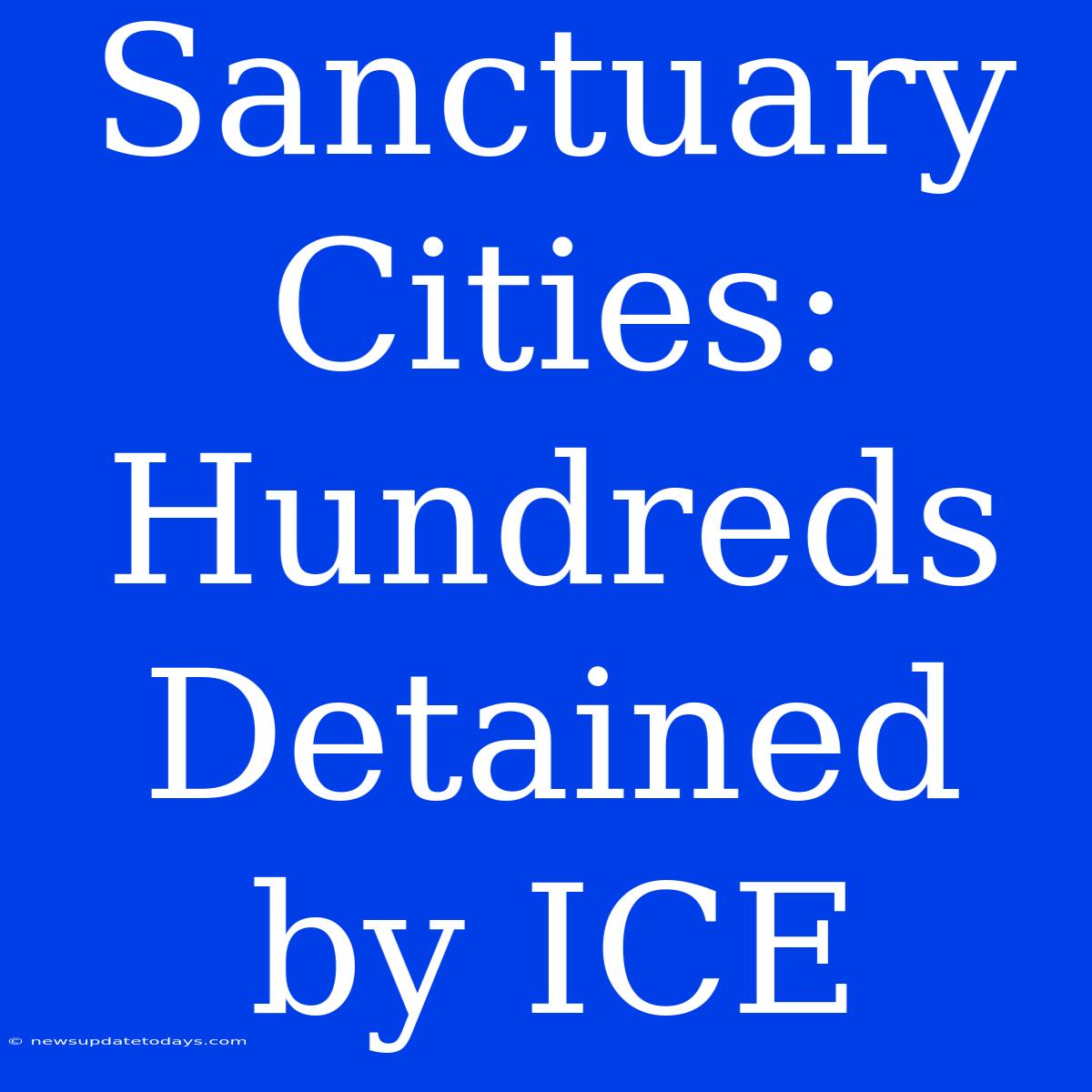Sanctuary Cities: Hundreds Detained by ICE – A Deeper Look at the Ongoing Conflict
The ongoing tension between federal immigration enforcement and sanctuary cities has recently flared up again, with reports of hundreds of individuals detained by Immigration and Customs Enforcement (ICE) within these designated areas. This raises crucial questions about the balance between local autonomy and federal law, and the impact on immigrant communities. This article delves into the complexities of this contentious issue.
Understanding Sanctuary City Policies
Sanctuary cities, counties, or states enact policies that limit cooperation with federal immigration authorities. These policies often prohibit local law enforcement from inquiring about immigration status during routine interactions or from holding individuals solely for ICE detainers. The core principle is to protect immigrant communities and foster trust, allowing individuals to report crimes without fear of deportation.
The ICE Enforcement Actions: A Closer Examination
Recent ICE actions in sanctuary cities have sparked outrage and debate. While ICE maintains its authority to enforce federal immigration laws anywhere in the country, the detentions within sanctuary jurisdictions highlight the challenges of navigating differing legal landscapes. The hundreds of detainees often represent a cross-section of the immigrant population, including those with criminal records and those without. This raises concerns about due process and potential profiling.
Key Arguments For and Against Sanctuary Cities
Arguments in favor of sanctuary city policies:
- Community Safety: Proponents argue that fostering trust between law enforcement and immigrant communities leads to increased reporting of crimes and enhanced public safety. Fear of deportation can prevent victims and witnesses from cooperating with investigations.
- Humanitarian Concerns: Many support sanctuary cities based on humanitarian principles, arguing that everyone deserves a fair chance and protection from unjust deportation.
- Local Autonomy: The debate also involves questions of local self-governance, with some arguing that federal overreach undermines the ability of local governments to manage their own affairs.
Arguments against sanctuary city policies:
- Enforcement of Federal Law: Critics argue that sanctuary city policies undermine federal law and create a system where some individuals are above the law. They prioritize the enforcement of federal immigration laws above all else.
- Public Safety Concerns: Some argue that sanctuary city policies endanger public safety by shielding potentially dangerous individuals from deportation. This is often countered by evidence demonstrating that undocumented immigrants are less likely to commit crimes than U.S. citizens.
- Resource Allocation: Opponents claim that sanctuary city policies burden local law enforcement agencies by diverting resources from other important matters.
The Future of Sanctuary Cities and Immigration Enforcement
The ongoing conflict between sanctuary cities and ICE represents a fundamental struggle over federal authority versus local control. The legal challenges surrounding ICE detainers and the broader question of immigration enforcement continue to evolve. Ultimately, finding a resolution that balances the needs of immigrant communities with the enforcement of federal law remains a significant challenge for policymakers at all levels of government.
The recent detentions of hundreds of individuals highlight the urgent need for a thoughtful and comprehensive discussion about immigration reform. This includes examining the effectiveness of current enforcement strategies, addressing concerns about due process, and exploring pathways to legal status for undocumented immigrants. Only through such dialogue can a solution be found that addresses both the concerns of those seeking to uphold the law and those advocating for the rights and dignity of immigrant communities.

